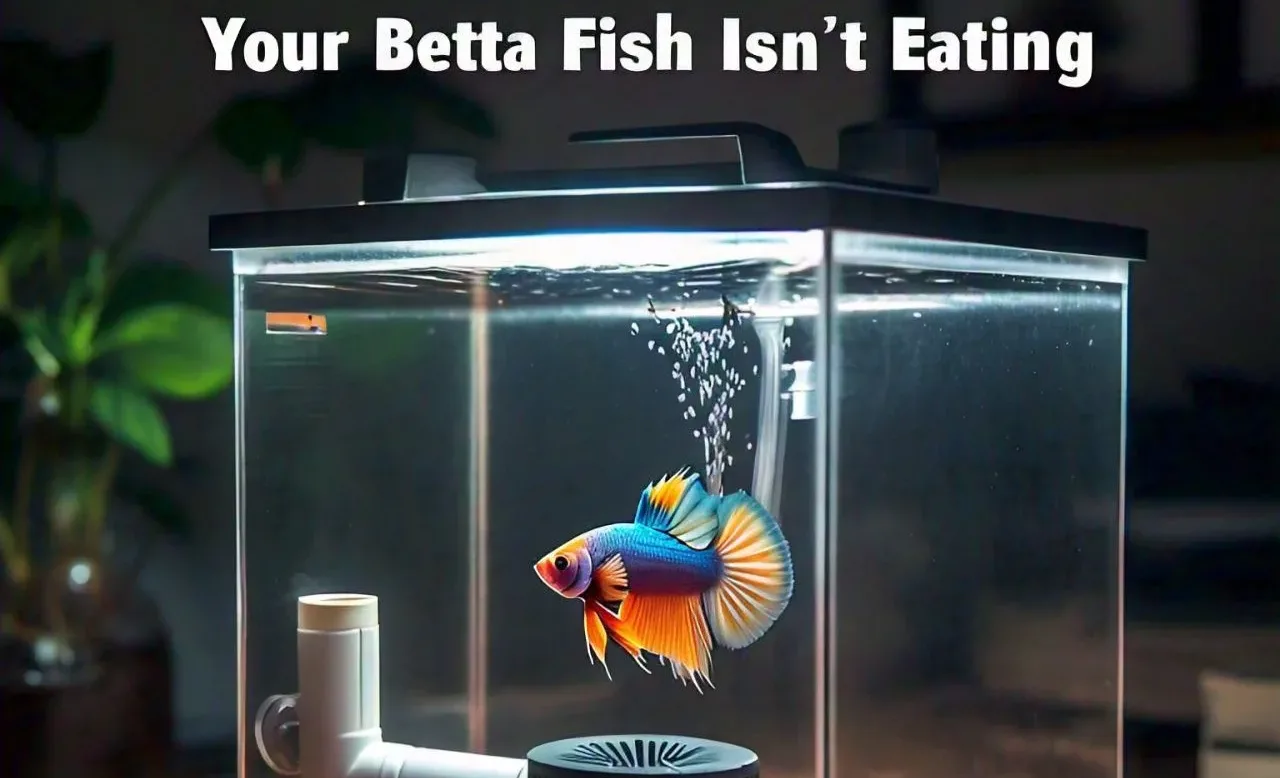Possibly related to various health or environmental factors. If your betta fish is not eating, it might reject the food due to preference or quality.
Bettas can sometimes be picky, so it’s worth trying different types of pellets or fresh options like bloodworms or brine shrimp. However, if your betta is not eating bloodworms, this could indicate a more serious underlying issue.
Why is My Betta Fish Lethargic And Not Eating?
It might be due to poor water conditions if your betta fish is lethargic and not eating. Ammonia or nitrate buildup can cause your betta to become stressed. After a water change, if you notice your betta fish is not eating after the water change, it could be adjusting to the new water parameters.
Why is my Betta Fish Not Eating And Floating Sideways
When a betta fish is not eating and floating sideways, it could be a sign of swim bladder disease, which affects their buoyancy. In this case, you might also see the fish sinking and not eating, showing difficulty in swimming properly. Swim bladder problems are often caused by overfeeding or constipation.
Why is my Betta Fish Bloated And Not Eating

Here’s a unique take on what might be happening and what you can do to help:
- Overfeeding or Poor Diet: Sometimes, bettas are overfed, especially with dry foods like pellets that can expand inside their stomachs after being eaten. This can lead to bloating.
- Swim Bladder Disorder: If the bloating is causing your betta to float awkwardly or struggle to swim properly, the issue may be with its swim bladder.
- Constipation: Similar to overfeeding, constipation can also cause bloating.
Fasting and then offering a small, cooked, and shelled pea can help clear up any blockages in their digestive system.
The Reasons Behind Your Betta Fish Isn’t Eating
Here’s-some-reasons:
- Water Temperature: Keep water between 78-80°F (25-27°C) for bettas to stay healthy and hungry.
- Water Quality: Ensure zero ammonia and nitrite levels with regular water changes to prevent appetite loss.
- Tank Mates: Avoid aggressive tank mates to prevent bullying and appetite issues.
- Water Flow: Bettas prefer calm waters, so adjust filters to minimize strong currents.
- Minimize Stress: Keep the tank in a quiet area away from loud noises and sudden movements.
- Illness: Infections, parasites, or intestinal issues can reduce appetite.
Adjust the filter to create a gentler flow so your betta feels more comfortable and can eat easily.
FAQs
- Why do Betta fish take only 2 minutes to eat?
Bettas are quick eaters and usually finish their food fast. This is normal if they are eating well
- Why is my betta fish not getting better?
Check the water quality and temperature, and make sure your betta is eating properly. If there’s no improvement, consult a vet
- Why has my betta fish been so lethargic the past few weeks?
Poor water quality, incorrect temperature, or illness might be the cause. Test the water, adjust the temperature, and check for disease symptoms
- What should I do if my betta fish is spitting out food?
Try different foods: Offer live or frozen bloodworms or brine shrimp.
Soak dry food: Make it easier to eat.
Check food size: Ensure food pieces are small.
Look for illness: Spitting out food might be a symptom of illness.
Conclusion
Common causes include poor water quality, incorrect temperature, stress, or illnesses like swim bladder disorder. Trying varied foods, such as bloodworms or brine shrimp, can also help stimulate appetite. If the issue persists, consider consulting a vet to address potential underlying health problems. A healthy environment and proper care are key to keeping your betta fish active and thriving.
